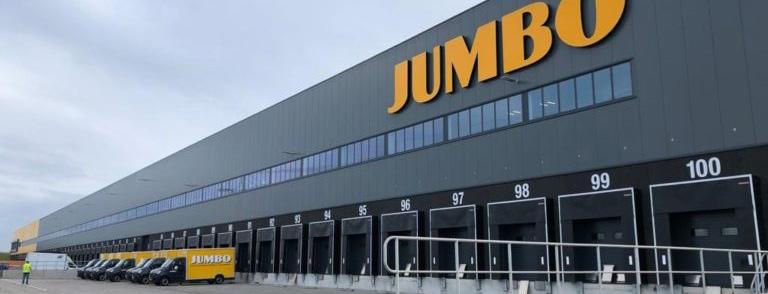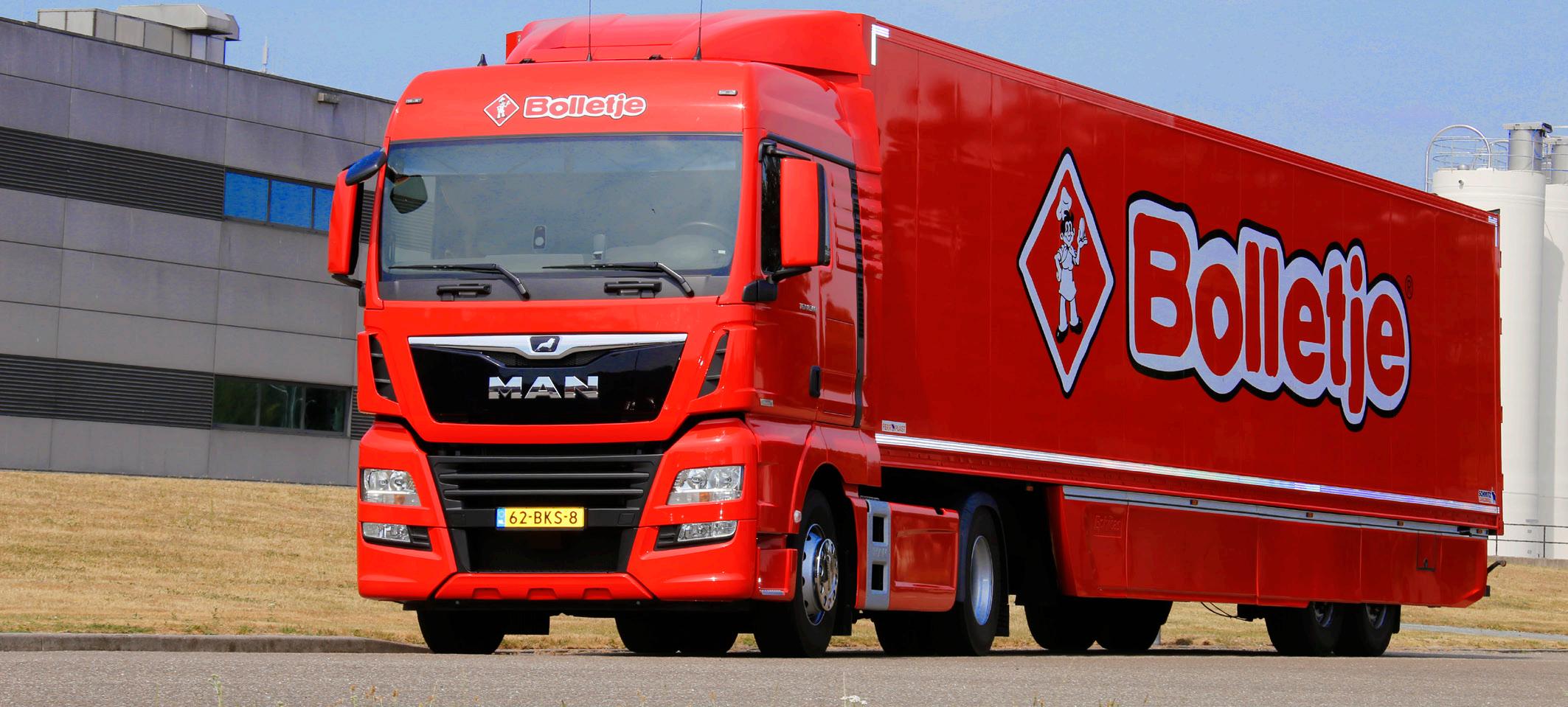
7 minute read
DPD: Ups-and-downs in the parcel world
The busy ‘December Month’ began a couple of weeks ago. To make sure that Santa Claus can deliver all presents on time, orders were placed already. One of the companies which contribute to delivering all parcels on time is Dynamic Parcel Distribution (DPD). How does DPD deal with delivering parcels on time? What about the employee occupation and forecast? Does DPD need to hire additional employees? Do the forecasts need to be adjusted? To answer these questions, SCOPE spoke with Jako Bos, director of intercontinental business, about parcels and employee occupation in the busy ‘December Month’.
TEXT Sander Roeleven DESIGN Caitlin Riesewijk
Advertisement
DPD:
Ups-and-downs in the parcel world
DPD is an international franchise network of parcel carriers. The company has been founded in Germany and was originally called ‘Deutscher Paketdienst’. In the Netherlands, DPD is headquartered in Oirschot. The company transports approximately 1.3 billion parcels worldwide each year and approximately 75000 employees work at DPD. DPD also has some basic principles that are important for them. Jako Bos: “Our company is like several other companies; employees, customers, and planet are important for us. Subsequently, making a profit in order to continue growing is an essential element as well for DPD”. Forecasting is an important element for DPD in its daily operations. Jako Bos explained how the forecast comes about in a ‘regular’ month: “First of all, we ask the sales department what their prediction is on how many parcels will arrive in the coming period. This prediction is compared with the extrapolation of the historical data. A stable process arises throughout the years, except last year when we had to deal with COVID-19. A big peak in demand arose due to COVID-19. This makes it harder to properly forecast this year because we are faced with a disruption”.
Besides forecasting properly, it is also important to have sufficient employees that can execute the work. How does DPD deal with this? Do they, for example, have many freelancers? Jako Bos explained: “It differs per segment. DPD does not have its own trucks or buses. This will all be outsourced by courier- and transport companies. In the operations, we work with around 30 percent permanent staff and around 70 percent temporary workers. At the
offices, all employees are permanently employed”. So, DPD tries to work with a fixed group of employees and ask all relevant partners both in transport and operations to scale up on time.
Ups-and-downs
The theme of this edition of the SCOPE is ‘ups-and-downs’ in, for example, demand or supply. How does DPD deal with this upcoming busy December? Jako Bos: “In The Netherlands, this is a very complex situation. On the first week of December, you have Black Friday, Cyber Monday, and Saint Nicholas. Moreover, Christmas takes place in December as well. So, this is actually a kind of ‘double effect’ in terms of busyness.” This could mean that the busyness is ‘unmanageable’. However, this will not be the case. “There will be a muted peak in the market this year. We asked our customers to order early so they will not be surprised with a late arrival of their order. This is one reason for the muted peak. Subsequently, the peak is leveling off compared to previous years. This has to do with the problems in the global supply such as unavailability of materials and the COVID-19 situation.”
December is definitely busier than other months of the year. The forecasts and employee occupation change in relation to a regular month. “These are scaled up considerably during the busy month” Jako Bos said. He continued: “We try to fix this with our current employees and temporary employees. We do not hire employees only for busy months, like December. Of course, good employees are always desired. Subsequently, we warn our partners when we expect busy periods. In this way, our partners are better prepared. For the transport department, they usually hire additional employees if available.”

Traffic on the road
During December, it is busy at all DPD branches, but how does DPD deal with the busy traffic on the road? Which influence does the traffic have on the service level to the customer? “The traffic does not have an enormous influence on the on-time delivery of parcels to the customers” Jako Bos started. “Our distribution system looks at how many parcels need to be transported and then calculates the time needed to deliver all parcels. The vans drive a relatively short distance on the highway in the morning and at the end of the working day. The rest of the time the drivers are in cities and villages. In the cities and villages, it is much easier to drive an alternative route as there are many more options for the drivers. Of course, it sometimes happens that a parcel arrives a few minutes later than scheduled.” The traffic on the road itself does therefore not influence the service level to the customer. A bigger problem is the capacity and time at the hubs. Jako Bos explained: “If there is not enough time available to prepare the parcels, this might lead to a one-day delay in delivering the parcels to the customer”.

Jako Bos
DPD Netherlands BV is a DPD Group/La Post entity delivering approx. 100M parcels annually of which the majority is to international destination. Jako is working at DPD for nearly 25 years and almost since the start of DPD in the Netherlands in 1994. Till mid of this year he was Director Network & Logistics Benelux, developing the international road network from Benelux into Europe and since this year he is responsible as Director International Gateway Rest Of World for developing the global intercontinental network for Benelux included the related export and import processes and compliancy regulations. In 2016 he achieved his Executive Master SCMLogistics grade (EMLog) at Wagner Group.

How to deal with ups-and-downs
No one could have predicted what the consequences were/are of COVID-19 on their company. This also applies to DPD. However, a busy month, like December, is a recurring phenomenon. “The bigger the company, the easier it is to deal with high peaks. This all has to do with the law of large numbers. The process becomes quite stable after several years. For example, DPD had much more trouble dealing with high peaks ten years ago. Nowadays, more appointments are made on how to deal with high peaks.” As told earlier, when the customers order earlier, it promotes the process of on-time delivery to the customer. “Definitely, this helps to better deal with ups-and-downs in demand!”
Future
To continue growing as a company, you have to improve your business processes continuously. DPD is also searching for improvements to keep existing in the future. Currently, DPD is figuring out how to work with an international forecast. “At this moment, The Netherlands has their own forecast, Belgium has their own forecast etcetera. If there is a country that suddenly has a high peak, this is then not included in the forecast, the average trend is actually continued.” DPD wants to introduce the so-called International Community Forecast (ICF) tool. Jako Bos explained: “When the forecasts of each country are put together, each country can then plan and coordinate better since you know the number of parcels from other countries. Information exchange is very crucial for your own forecast. Subsequently, by communicating frequently, your forecast becomes more accurate.” So, having all forecasts together can improve an individual forecast.
Another part DPD will focus on in the near future is shop delivery: delivering the parcels to a shop. “When customers indicate that they are not at home at the time their parcels arrive, DPD can deliver the parcels to the nearest shop. If, for example, the driver has to drive to one shop instead of four houses, this will increase the capacity significantly. However, good agreements have to be made with the shops since one shop is fine with receiving many parcels and the other wants a maximum number of parcels in its shop.” It is therefore not as easy as it looks: multiple parties are involved and appointments have to be made. In short, DPD has become bigger and bigger over the years. This makes it easier for them to deal with ups-anddowns. However, COVID-19 made it harder to deal with high peaks as this was unexpected. Especially the forecast has become challenging since it cannot be predicted whether such a situation will occur again. Subsequently, DPD is always improving and seeking new challenges!









